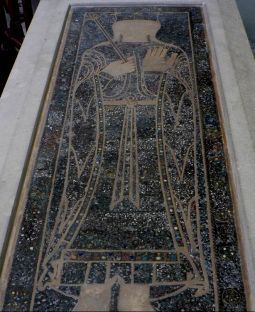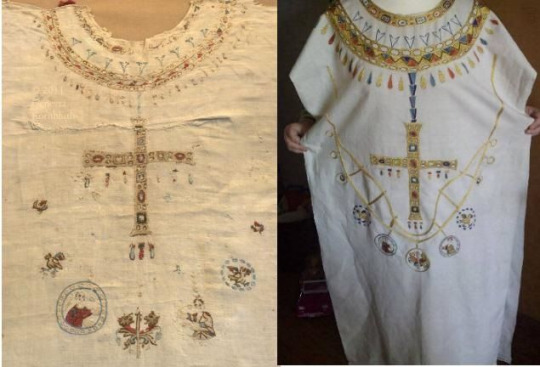#rotomagus
Text
HEATHEN DISCO show no. 337 (aka 1337) online now

Extremely stoked about this week's show -- getting my reps up for a public gig here in Chicago end of June and more to follow after.
Listen onnnnnnnnnn
HOUR 1
Milford Graves with Hugh Glover – March 2, 1976 III
Deadbeat & Om Unit – Stalk
imPLOG – Holland Tunnel Dive
Maxine Funke – Long Beach
Quando Quango – Love Tempo (mix)
Edward Crosby & Singing DJ – Party Time Remix (Party Beat)
Ron Morelli – Subway Shootout
He Said – Not a Soul
Ky – The Dancer
Anne Clark – Sleeper in Metropolis
KVL – Microvibe
Avalon Emerson – Dreamliner
HOUR 2
Jane Inc. – 2120
2 Body’s – Astoria
O.R.S. – Moon-Boots
My Dad Is Dead – The Water’s Edge
Big Black – Kerosene
Lana Del Rabies – Mother
Royal Trux – Second Skin
The Cure – The Walk
International Music System – An English ‘93
Colourbox – Looks Like We’re Shy One Horse
Bailter Space – Your Invisible Life
FACS – Boy
Glittering Insects – Glittering Insects
The Only Ones – Miles from Nowhere
HOUR 3
Crystalized Movements – In the Open World
Rotomagus – Fightin’ Cock
Joshua Abrams – A Lucky Stone
Calvin Keys – B.E.
The God in Hackney – Bardo!
Mute Duo – The Ocean Door
Royal Headache – Stand and Stare
Lobby Loyde & the Coloured Balls – Mr. Mean Mouth
Circus – Stop, Wait and Listen
Strawberry Switchblade – Spanish Song
Primal Scream – Crystal Crescent
Boys from Nowhere – Jungle Boy
Blutt – Bing Bang Boum (Bam)
Swell Maps – Let’s Build a Car
The Colors Out of Time – Rock Section
LL Cool J – Jingling Baby
5 notes
·
View notes
Video
youtube
Rotomagus - "The Flufluting Flatmul" & "Little Green Man" (1971)
1 note
·
View note
Text

C'est vachement bien au Rotomagus !
0 notes
Photo






MEROVINGIAN REGINAE | Fredegund Regina († 597)
Third principal wife of Chilperich I Rex, to whom she bore five sons, Chlodobert Rex, Samson Rex, Dagobert Rex, Theodorich Rex and Chlothacar II Rex, and one daughter, Rigund Regina. As Chilperich’s wife, she may have lived between several civitates, such as Rotomagus (Rouen), Parisius ( Paris), Sexonas (Soissons) or Brennacum (Berny).
According to Gregorius of Tours, she was already his favourite even before the wedding with Galswintha Regina in 567, and despite the fact he had to put aside his whole women and concubines for this wedding, including his first chief wife, Audovera Regina, he quickly took her back near him. Even if we do not know exactly when or why, it must have been because she bore him her first son Chlodobert Rex, much to the anger of Galswintha Regina, who felt outraged by her presence.
“[...] promittens per legatus se alias relicturum, tantum condignam sibi regisque prolem mereretur accipere. [...] Quae cum ad Chilpericum regem venisset, cum grande honore suscepta eiusque est sociata coniugio; a quo etiam magno amore diligebatur. Detulerat enim secum magnos thesauros. Sed per amorem Fredegundis, quam prius habuerat, ortum est inter eos grande scandalum.
He told the messengers to say that he promised to dismiss all the others, if only he were considered worthy of marrying a King’s daughter of a rank equal to his own. [...] When she reached the court of King Chilperic, he welcomed her with great honour and made her his wife. He loved her very dearly, for she had brought a large dowry with her. A great quarrel soon ensued between the two of them, however, because he also loved Fredegund, whom he had married before he married Galswinth.”
DLH, IV 28. De uxoribus Chilperici
After the death of Galswintha Regina in 568, she officially became Chilperich’s new chief wife and gave birth to all of his other children. Basing on the sources, he apparently remained faithful to her and did not take other significant concubine. Fredegund seemed to have been very popular and loved by the people, and was also known as being a good administrator and landowner, as she was able to raise money and numerous gifts for her daughter’s dowry.
“Sed et mater eius inmensum pondus auri argentique sive vestimentorum protulit, ita ut videns haec rex nihil sibi remansisse potaret. Quem cernens regina commotum, conversa ad Francus, ita ait: ‘Ne potitis, viri, quicquam hic de thesauris anteriorum regum habere; omnia enim quae cernetis de mea proprietate oblata sunt, quia mihi gloriosissimus rex multa largitus est, et ego nonnulla de proprio congregavi labore et de domibus mihi concessis tam de fructibus quam tributis plurima reparavi. Sed et vos plerumque me muneribus vestris ditastis, de quibus sunt ista quae nunc coram videtis; nam hic de thesauris publicis nihil habetur’.
Her. mother added a vast weight of gold and silver, and many fine clothes. When he saw this, King Chilperic thought that he had nothing left at all. Queen Fredegund realized that he was upset. She turned to the Franks and said: ‘Do not imagine, men, that any of this comes from the treasures amassed by your earlier kings. Everything you see belongs to me. Your most illustrious King has been very generous to me, and I have put aside quite a bit from my own resources, from the manors granted to me, and from revenues and taxes. You, too, have often given me gifts. From such sources come all the treasures which you see in front of you. None of it has been taken from the public treasury’.”
DLH, VI, 45. De nuptiis Rigunthae, filiae Chilperici
However she had to face the death of almost all her sons: Samson in 577, Chlodobert and Dagobert in 580 during the Plague of the Gauls, and then Theodorich in 584. The same year, her husband was brutally killed, leaving her alone with her last son, Chlothacar II Rex, who was barely 4 months, and her daughter Rigund Regina, at that time on the road to marry Reccared, heir of Toledo. She seized the royal treasure and took refuge in the Basilica Saint-Étienne de Paris, claiming the role of regent over the regnum Neustria, and placing herself under the protection of Guntchramn Rex and Bishop Ragnemod of Parisius.
“Interea Fredegundis regina iam viduata Parisius advenit et cum thesauris, quos infra murorum septa concluserat, ad aeclesiam confugit adque a Ragnemodo fovetur episcopo.
Meanwhile the widowed Queen Fredegund arrived in Paris. She took with her that part of her treasure which she had secreted within the city walls, and she sought sanctuary in the cathedral, where she was given protection by Bishop Ragnemod.”
DLH, VII, 4. Quod Fredegundis in aeclesia confugit
As Guntchramn was having doubts on the parentage of her baby, she summoned an assembly of 3 bishops and 300 nobiles who all attested of her honorability and officially named the baby Chlothacar.
“Interea Fredegundis regina iam viduata Parisius advenit et cum thesauris, quos infra murorum septa concluserat, ad aeclesiam confugit adque a Ragnemodo fovetur episcopo.
Meanwhile the widowed Queen Fredegund arrived in Paris. She took with her that part of her treasure which she had secreted within the city walls, and she sought sanctuary in the cathedral, where she was given protection by Bishop Ragnemod.”
DLH, VII, 4. Quod Fredegundis in aeclesia confugit
She also managed to save her daughter, who was taken as an hostage by Dux Desiderius after the new of her father’s death, and threaten to be taken in marriage by force by the pretender Gundovald.
“Fredegundis autem his diebus Chuppanem in Tholosano direxit, ut scilicet filiam suam exinde quocumque modo possit eruere. [...] acceptam Rigundem a loco illo reduxit, non sine grande humilitate adque contumilia.
At this time Fredegund sent Chuppa into the Toulouse area to bring home her daughter Rigunth by hook or by crook. [...] so he took Rigunth, humiliated and insulted as she was, and brought her home instead.”
DLH, VII, 39. Quod idem emisit qui Brunechildem lederet
Facing multiple oppositions because of her new position, she managed to secure herself with various allies among the nobiles and neutralized her major opponents, such as Bishop Praetextatus, who resented her for many years. As a regent, she was known as being fearless and cunning, rendering justice, and even challenging her brother-in-law Guntchramn on some matters, such as negociations with Hispania while he strictly forbidden it, or with Brittany in 586.
“Sed et Warocum nuntios dirigit, ut, qui adhuc captivi in Brittaniis de exercitu Gunthchramni regis retenebantur, pro huius vita absolverentur. Quod ita Warocus implevit.
[S]he sent messengers to Waroch, ordering him to set free the prisoners from King Guntram’s army whom he was still holding in Brittany. Waroch did as he was told.”
DLH, X, 11. De infirmitate Chlothari iunioris
Despite their mutual hostility, they pursued diplomatic relationship and she was regarded as the true leader of the west regnum during the whole minority of Chlothacar, even leading military expeditions with him. She was also a pious woman, who made several donations to churches and basilicas.
“Sed cum eum Fredegundis, mater eius, disperatum vidisset, multum pecuniae ad basilicam sancti Martini vovit, et sic puer melius agere visus est.
When Fredegund, the mother of Lothar, saw how desperately ill he was, she vowed that she would donate a great sum of money to the church of Saint Martin.”
DLH, X, 11. De infirmitate Chlothari iunioris
She eventually died of natural causes in 597, in Parisius and was buried near her husband into the Basilica Sainte-Croix-et-Saint-Vincent (actual abbey of St. Germain-des-Prés), in Parisius (Paris). Her grave, which had been identified thanks to a later tombstone, had been moved during the 19th century in the Basilica of St. Denis, where it is still nowadays.
“Anno secundo regni Teuderici Fredegundis moritur.
The second year of Theuderic’s reign, Fredegund dies.”
Chron, IV, 17. De Fredegunde, quod Parisius invasit, et pugna contra Teudeberto

Fredegund’s grave in St. Denis

Detail of the tombstone
#historyedit#perioddramaedit#women in history#merovingian queens#merovingian reginae meme#fredegund regina#6th century#my queen!!!!!#i love her as much as infinity!#next move i want to see her grave ;A;
156 notes
·
View notes
Text
Transatlantic Teutonic Two Step Take 104 - [Feb 20th 2022]
Please click Here if the widget does not appear
Tracks:
Bongwater - Why Are We Sleeping? - V.A. Chemical Imbalance #7 7-inch E.P. (1990) [Chemical Imbalance]*

*Cover from The Soft Machine
The Road Hogs - The Very Last Day - My Generation 45 (1966) [International Polydor Production - 52 945]

Stray - Only What You Make It - Only What You Make It 45 (1971) [Metronome - M 25 286]

Jacques Dutronc - L'Augmentation - (Il Est Cinq Heures) Paris S'Eveille 45 [Vogue Schallplatten - DV 14724]

Rotomagus - The Sky Turns Red - Eros 45 (1970/2017 reissue) [Cameleon Records - CAME 55]

Bardo Pond - Trip Fuck - Trip Fuck 45 (1994) [Drunken Fish Records - DF-09]

Apache Dropout - School Girl - Radiation 7 inch EP (2018) [Mexican Summer - MEX098]

The Fireballs – Groovy Motions - Goin' Away 45 (1968) [ATCO Records - 45-6569]

The Warm - Mail Call - Some Kind-A Wonderful 45 (1969) [Decca - 32623]

Guided By Voices - Game Of Pricks (Single Version) - Tigerbomb 7 inch EP (1995) [Matador - OLE 168-7]

Dickie Goodman - Ed's Tune - Kong 7 inch (1977) [Shock Records - SH-6]

0 notes
Text
"The Wrath of the Iutes" locations
"The Wrath of the Iutes" locations - new blog post
#histfic #historicalfiction #ancientrome #roman #wales #brittany #armorica #gwynedd
It’s time for another of the “locations” post – I like to think of my books as much as a travelogue as action novels, and the travels of my characters in Book 5 take them to the very north-western edges of the Empire: from Armorica to Northern Wales.
“The Wrath of the Iutes” is released on July 1st – pre-order now!
ROTOMAG – Rotomagus, Rouen
A major harbour on the River Seine, once the second…

View On WordPress
#ancient rome#armorica#brittany#historical fiction#history#roman#roman britain#song of britain#song of octa#wales#wrath of iutes#writing
0 notes
Photo

MORE REISSUES OF SUPER RARE PSYCH, PROG, HARD ROCK, GARAGE ROCK ETC: The 49th Parallel, Christopher, The Deep, The Factory, Free Jazz Workshop, Greylock Mansion, Hanuman, McCully Workshop, Ptarmigan, Rotomagus, Salamander, Tin House, Electric Holyland comp, Wilson McKinley, Yggdrasil #psychedelicrock #progrock #garagerock #hardrock #freejazz (at Siren Records) https://www.instagram.com/p/CMFXqIbDfTB/?igshid=1u4iqq4yio5uj
0 notes
Photo

Avent 17. 1431. Après Rotomagus (le nom gallo-romain de Rouen), la brasserie La Mousse des Temps continue sur les références à l'histoire locale. Pour ceux qui l'ignoreraient, 1431 est l'année du procès et de l'exécution de Jeanne d'Arc qui comme nous détestait les lendemains de cuite. Assez alcoolisée et florale au nez, effervescente et bien ambrée, elle a de l'allure dans le verre. À la première gorgée c'est le côté astringeant de l'amertume qui saisit. Mais cette impression ne dure pas et est tout de suite compensée par un bel équilibre sur le sucre et l'agrume. Une chouette IPA ! #bière #beer #instabeer #frenchbeer #lamoussedestemps #1431beer #avent2018 #allbeer #sampa_drinks (à Moulineaux) https://www.instagram.com/p/BrgNBxLB3g_/?utm_source=ig_tumblr_share&igshid=1w49l59nvlmnz
0 notes
Text
Inhalt
Teil 1 – Die Suche 1 Endi war hohl 2 No Man´s Land Füllung Maryam Tod und Verderben 3 Das Gesicht im Spiegel 4 Selbstmord in Düsseldorf Abfahrt Ankunft Zests Villa Bei Zest Elly Zest Flechtheim 5 Distanziert Nähe Gewitter Exzess 6 Tote Handwerker 7 Fotografie und Ficken 8 Das Grab 9 New York `77 10 Die Stadt der Neurotiker Rouen Rotomagus Auster 11 Inferno Chiado Billigflieger Klimmen en dalen 12…
View On WordPress
0 notes
Audio
Rotomagus - Fightin' Cock (1971)
2 notes
·
View notes
Note
Hi! Could you please tell me more about the times when Brunehilde and Fredegund led armies? Thank you so much :)
Sure! First of all, we don’t have lots of account of these two being directly involved in war matters like conducting armies to battlefront, they have duces and patricii for that, but they may have been in charge for some specific events in which they had to represent a military authority, as regents.
First example happened in 581. Brunehilde, regent for Childebert II (11 at that time, still a minor as majority was effective c. 13/14), had to face a difficult shift of power inside the government after the death of the powerful nutritor Gogo: Gogo’s ally, the dux Lupus, became chased by other officials, such as Berthefredus and Ursio, two powerful men, and nearly killed by them. Even if Berthefredus was in fact one of her allies (she was the godmother of her daughter), Brunehilde decided to intervene and protect Lupus. According to Gregorius of Tours:
“Lupus vero dux Campanensis, cum iam diu a diversis fategaretur et spoliaretur assiduae et praesertim ab Ursione et Berthefredo [...]. Quod cernens Brunichildis regina, condolens fidelis sui insecutiones iniustas, praecingens se viriliter, inrupit medios hostium cuneos, dicens: ‘Nolite, o viri, nolite malum hoc facere, nolite persequere innocentem; nolite pro uno hominem committere proelium, quo solatium regionis intereat’.
Lupus, Duke of Champagne, had long been harassed and despoiled by those who were hostile to him, especially Ursio and Berthefried. [...] When Queen Brunhild learned of this, she was greatly incensed at the wrongs being done to her faithful supporter. She girded herself manly, then burst into the midst of enemy lines saying: ‘Stop!’ she shouted. ‘Warriors, I command you to stop this wicked behaviour! Stop harassing this person who has done you no harm! Stop fighting each other and bringing disaster upon our country, just because of this one man!’”
DLH, VI, 4. Qualiter Lupus a regno Childeberthi fugatus est
Technically, she didn’t acted as a real warlord, but we see the way she demonstrated her authority, especially in the way she is described (praecingens se viriliter), because she endorsed a manly quality, i.e. an authority as a regent. And she succeded in her intention and prevented the death of Lupus.
Even if Gregorius doesn’t mention it clearly, we know what it implied when he speaks about the way she is “girded herself” i.e., the famous cingulum, a belt which was a part of the military equipment during the Roman republic and empire, an element which eventually might have became an element worn by female regents from the merovingian dynasty: a century later, Bathildis, widow of Chlodovech II and regent for Chlothacar III, wore also a cingulum that she eventually offered to the monastery of Curbione, as a pious donation for alms (Vita Bath, A, c. 8). It may have been a symbol of military authority and personification of royal power as reges, duces and maiores palatii also worn it.
Second case is Fredegund, but it’s a little bit spurious as it only happened in the Liber Historiae Francorum, who also says that she killed Chilperich after she mixed him up with her lover while washing her hair, so.... \_(ツ)_/¯
Anyway, the LHF tells us the story that while being of the verge to attack his opponents, Ebroinus visited Bishop Audoenus of Rotomagus (Rouen), searching for his advices, and the religious man said to him “Remember of Fredegund!” as a some sort of tactical advice (LHF, 45), apparently refering to a battle in Trucia (Droizy) she led with her young son against the Austrasian armies (LHF, 36). In the telling, she is specifically described as travelling with the armies with the youn Chlothacar (around 8/9 years at that time), same goes for the way she is attacking Parisius (Paris) later in the reign (Chron, IV, 17):
“Cum dedicisset quod nimis esset exercitus Austrasiorum coniuncitis simul, consilium dedit Francos qui cum ea erant, dicens : « De nocte consurgamus contra eos cum lucernis, portantes socii qui nos precedunt, ramis silvarum in manibus, tintinnabolis super equos legatis, ut nos cognoscere ipsorum vigiles custodes hostium non queant. Inluciscente inicium diei, inruamus super eos, et forsitan eos devincimus. » Placuitque hoc consilium. Cum denunciatum fuisset placitum qua die ad preliandum in loco nuncupante Trucia in paygo Suessionico convenire deberent, illa, sicut consilium dederat, de nocte consurgens cum armorum apparatu, cum ramis in manibus vel reliqua quae superius diximus, ascensis equitibus, Chlothario parvolo rege in brachia vehitans, usque Trucia pervenerunt.
When [Fredegund] heard that the Austrasian army was very numerous, she gathered the Franks who were with her, held a council with them and said to them: “Let us approach them at night with torches; those of us who are ahead will hold tree branches in their hands, and bells will be tied to the horses, so that the night watchmen of their host cannot recognize us. And when the dawn breaks, we will come upon them, and maybe we will defeat them.” This plan suited them. While an agreement had been reached on the day when the armies should meet for combat at a place called Droizy in the pagus of Soissons, they set out at night, following the advice she had given, equipped with their weapons, with branches in their hands and with the other stratagems mentioned above; the riders being mounted on their horses, and the queen carrying in her arms the little king Clothar, they reached Droizy.”
LHF, 36. Ubi Fredegundis bellum cum Austrasiis ergit, eosque devictos Campaniam succendit
“Eo anno Fredegundis cum filio Clothario regi Parisius uel reliquas ciuitates rito barbaro occupavit et contra filius Childeberti regis Teudeberto et Teuderico movit exercitum loco nominante Latofao.
This year, Fredegund with her son, King Clothar, barbarically invests Paris as well as other cities, and she marched an army against the sons of King Childebert, Theudebert and Theuderic, in a place called Laffaux.”
Chron, IV, 17. De Fredegunde, quod Parisius invasit, et pugna contra Teudeberto
I absolutly don’t know how much we can give credit to these accounts, but it seems to have been a great story even among the Frankish noblemen. Don’t know if we could take it for granted, but I quite like the idea of a Fredegund seen as a model of power-ruling and tactics among the Franks.

#ask#encyclopedia-amazonica#women in history#fredegund regina#brunehilde regina#merovingian period#6th century#7th century#not so much about this i'm affraid#but the few is already interesting :)
39 notes
·
View notes
Photo






MEROVINGIAN REGINAE | Brunehilde Regina († 613)
Chief wife of Sigebert I Rex, to whom she gave two daughters, Ingund II Regina and Chlodosuinda III Regina, and one son, Childebert II Rex, she is probably one of the most powerful women of her time.
Although her date of birth remains unknown, we know that she was the youngest daughter of Athanagild of Toledo and his wife Goiswintha, and that she had an older sister, Galswintha Regina.
“Nam Galsuintha aetate senior a Brunichilde erat.
Galswinth was older than Brunhild.”
DLH, IV, 28. Quod Sigiberthus Brunichildem accepit
In 566, she married Sigebert I Rex, and remains his only known consort. As Sigebert’s wife, she may have lived in Mettis (Metz) or Colonia (Cologne), principal civitates of his regnum.
“Porro Sigyberthus rex cum videret, quod fratres eius indignas sibimet uxores acciperent et per vilitatem suam etiam ancillas in matrimonio sociarent, legationem in Hispaniam mittit et cum multis muneribus Brunichildem, Athanagilde regis filiam, petiit.
King Sigibert observed that his brothers were taking wives who were completely unworthy of them and were so far degrading themselves as to marry their own servants. He therefore sent messengers loaded with gifts to Spain and asked for the hand of Brunhild, the daughter of King Athanagild.”
DLH, IV, 27. De uxoribus Chilperici
The next year, in 567, her sister married too in the Gauls, and became the principal wife of Chilperich I Rex, half-brother of Sigebert. However, the marriage did not last long and Galswintha was found dead in her bed after only one year of marriage.
“Quae cum ad Chilpericum regem venisset, cum grande honore suscepta eiusque est sociata coniugio; a quo etiam magno amore diligebatur. Detulerat enim secum magnos thesauros. Sed per amorem Fredegundis, quam prius habuerat, ortum est inter eos grande scandalum. Iam enim in lege catholica conversa fuerat et chrismata. Cumque se regi quaereretur assiduae iniurias, perferre diceretque, nullam se dignitatem cum eodem habere, petiit, ut, relictis thesauris quos secum detulerat, libera redire permitteretur ad patriam. Quod ille per ingenia dissimulans, verbis eam lenibus demulsit. Ad extremum enim suggillari iussit a puero, mortuamque repperit in strato.
When [Galswinth] reached the court of King Chilperic, he welcomed her with great honour and made her his wife. He loved her very dearly, for she had brought a large dowry with her. A great quarrel soon ensued between the two of them, however, because he also loved Fredegund, whom he had married before he married Galswinth. Galswinth was converted to the Catholic faith and baptized with the chrism. She never stopped complaining to the King about the insults which she had to endure. According to her he showed no respect for her at all, and she begged that she might be permitted to go back home, even if it meant leaving behind all the treasures which she had brought with her. Chilperic did his best to pacify her with smooth excuses and by denying the truth as convincingly as he could. In the end he had her garrotted by one of his servants and so found her dead in bed.”
DLH, IV, 28. De uxoribus Chilperici
As she was childless, according to the law, all her possessions and properties had to pass to her legal heir, i.e. her sister Brunehilde Regina. As this inheritance would have deprived him of major cities of his regnum, Chilperich I Rex refused Brunehilde’s rights on it, and Sigebert called for a mediation, but the two brothers did not reach an agreement and grew an hostility between them.
In 575, due to this common hostility and to several military assaults, Sigebert called a war against his brother and successfully led an army to the west, in the future Neustria. Brunehilde followed him with her children, and was present in Parisius (Paris) when her husband was ultimately killed, perhaps on the orders of Chilperich I Rex who had been forced to retreat in the civitas of Turnaco (Tournai). Taken as a prisoner and deprived of all of her treasuries, she was exiled in Rotomagus (Rouen), separated from her daughters who were send to Meldicus (Meaux), meanwhile her son was taken in charge by nobiles and crowned new rex over Mettis (Metz) at 5.
“Igitur interempto Sigybertho rege apud Victuriacum villam, Brunichildis regina cum filiis Parisius resedebat. Quod factum cum ad eam perlatum fuisset et, conturbata dolore ac lucto, quid ageret ignoraret, Gundovaldus dux adpraehensum Childeberthum, filium eius parvolum, furtim abstulit ereptumque ab immenente morte, collectisque gentibus super quas pater eius regnum tenuerat, regem instituit, vix lustro aetatis uno iam peracto. Qui die dominici natalis regnare coepit. Anno igitur primo regni eius Chilpericus rex Parisius venit adpraehensamque Brunichildem apud Rodomaginsem civitatem in exilio trusit thesaurisque eius, quos Parisius detulerat, abstulit; filias vero eius Meledus urbe tenire praecipit.
At the moment when King Sigibert was killed in Vitry, Queen Brunhild was in residence with her children in Paris. When the news was announced to her, she was prostrate with anguish and grief, and she hardly knew what she was doing. Duke Gundovald took charge of her little son Childebert and removed him from her in secret, snatching him from certain death. Gundovald assembled the people over whom Sigibert had reigned and proclaimed Childebert King, although he was barely five years old. Childebert began to reign on Christmas Day. In the first year of Childebert’s rule, King Chilperic came to Paris, seized hold of Brunhild, banished her to the city of Rouen and took possession of the treasure which she had brought to Paris. He ordered her daughters to be held in custody in Meaux.”
DLH, V, 1. De Childeberthi iunioris regno et matre eius
During her captivity, she was visited by Merovech Rex, son of Chilperich I Rex, who then married her with the help of his godfather, Bishop Praetextatus, perhaps in order to strengthen his own power; Brunehilde’s consent on this matter is unknown, and it is probable that she was actually married by force rather than falling in love with a young man, as some scholars want to see it... However, since they were aunt and nephew, the marriage was contrary to the canon law, and Chilperich rapidly intervened to separate them: Merovech was tonsured to nullify the ceremony, and Brunehilde sent away with her daughters to reunite with her son, in Austrasia.
She then sought the regency on behalf of her son, even if she had to face the strong disapprobation of the nobiles, mostly the powerful Gogo. From 576 to 583, she nonetheless personified the true power in Austrasia, building up political alliances, such as with her brother-in-law Guntchramn Rex or with Hispania through the marriage of her daughter Ingund II Regina to prince Hermenegild, and was known as an excellent administrative reformer. She also had to face some opposition against her, such as the conspiration led in 587 by three nobiles, Rauchingus, Ursio and Berthefredus, who tried to assassinate her and Childebert. As the regina-mother, she seemed to maintain herself within in her family, as she had a devoted (and perhaps low-ranking) daughter-in-law, Faileuba Regina, who never tried to challenge her superiority.
In 587 again, she attended with her daughter Chlodosuinda III Regina and Faileuba Regina, to the Treaty of Andelao (Andelot), where Childebert and Guntchramn agreed on Guntchramn’s succession and the future of the women when they both would be dead: she was reaffirmed in her own rights as the heir of her sister and as the mother of the rex. She also initiated a correspondence with both byzantine emperors and pope Gregorius, and personally intervene when her daughter Ingund II had to fled the Hispania and tried her best to take her home with her child, however in vain.
Upon the death of her son in 596, she pursued her ruling by being appointed regent again on behalf of her two grandsons, Theodorich II Rex, rex over Burgundia, and Theodebert II Rex, rex over Austrasia. But she started to find resistance in the person of her granddaughter-in-law, Bilichildis I Regina, a former slave-girl she had trained. With new opposition from the nobiles, she was forced in 599 to retire from Austrasia, where she was actually living, and joined Theodorich in Burgundia with her granddaughter, Theodelina Regina.
“Eo anno Brunechildis ab Austrasies eiecta est et in Arciacinsem campaniam a quidam homini paupero singula reperitur. Secundum eius peticionem ipsam ad Teuderico perduxit. Teudericus aviam suam Brunechildem libetner recipiens gloriose honrat.
This year, Brunhild was driven out by the Austrasians. A poor man meets her, all alone, near Arcis in Champagne. In accordance with her wishes, he led her to Theuderic. Theuderic welcomes his grandmother Brunhild and covers her with honor.”
Chron, IV, 19. De Brunechilde, qualiter de Auster est egecta
She quickly became a prominent figure of Theodorich’s immediate entourage, and dominated his inner-court, even avoiding, according to the sources, the consumption of his marriage with the wisigothic princess, Ermenberga.
With her new advisor, Protadius, she started to form a faction waging war against Chlothacar II Rex, who was actually growing in importance, and tried to maintain diplomatic relationship with Theodebert II Rex and Bilichildis, with whom she entertained a regular correspondence. She was an important religious builder with three major foundations in Augustodunum (Autun), even if she also had troubles with religious men, especially with Colombanus who accused her great-grandchildren of being bastards because they were born from concubines and not from a wedded wife.
In 613, after the death of Theodorich II Rex, and in absence of a powerful mother to claim the guardianship, she became regent for the third time, for her great-grandson, Sigebert II Rex, still a child. But Warnacharius II, Maior Palatii of Burgundia, alongside Pippin I and Arnulf of Mettis, resentful towards her, abandoned her cause and joined Chlothacar II Rex that they recognized as the rightful leader of the Franks.
Betrayed by the rest of her leading nobiles, she fled with Theodelina, but they were arrested and delivered in Rionava (Renève) to Chlothacar, who accused her of the murders of ten reges and then sentenced her to death with her young great-grandsons. She was tortured and humiliated in front of the whole army, then tied by foot and hair to a wild horse and torn apart. The remains of her body were burnt and the ashes buried in the Abbey of Saint-Martin d’Autun that she had founded in 602.
“Factionem Warnachariae maioris domus cum reliquis maxime totis procerebus de regnum Burgundiae Brunechildis ab Erpone comestaboli de pago Vltraiorano ex uilla Orba una cum Theudilanae germana Theuderici producitur et Chlothario Rionaua uico super Vincenna fluuio presentatur. [...] Chlotharius, cum Brunechildis suum presentatur conspectum et odium contra ipsam nimium haberit, repotans ei eo quod decem reges Francorum per ipsam interfecti fuissent - id est Sigybertus et Meroeus et genitor suos Chilpericus, Theudebertus et filius suos Chlotharius, item Meroeus filius Chlothariae, Theudericus et eiusdem filiae tres, qui ad presens estincti fuerant - per triduo eam diuersis tormentis adfectam, iobetque eam prius camillum per omne exercito sedentem perducere, post haec comam capitis, unum pedem et brachium ad ueciosissemum aequum caudam legare: ibique calcibus et uelocitate cursus membratim disrumpetur. .
Following the maneuvers of Warnacharius, the mayor of the palace, and of almost all the other great men of the kingdom of Burgundy, Brunhild, at the same time as Theodelane, Theuderic's sister, was led out of the domain of Orbe by the count Herpo in the district of Jura and was presented to Clothar in the village of Renève, on the Vingeanne. [...] Clothar, before whom Brunhild is presented and who harbored a lively hatred towards him, imputes to her the murder of ten kings, namely Sigebert and Merovech, as well as their father Chilperic, Theudebert and his son Clothar, a another Merovech, Clothar's son, Theuderic and his three sons, who had just been killed. After having inflicted various torments on her for three days, he ordered that she be led through the whole army perched on a camel, then tied by the hair, a foot and an arm to the tail of a particularly fiery horse. Then she was tied to the feet of wild horses and torn apart limb from limb.”
Chron, IV, 42. De quod Chlotarius regnum Burgundiae et Auster recipit et filius Teuderici occisit
#historyedit#perioddramaedit#women in history#merovingian queens#merovingian reginae meme#brunehilde regina#merovingian period#6th century#7th century#mine#she's very fascinating#but also difficult to handle#actually i think a lot of scholars totally misunderstand her#too much sources on her#i had to chose because the post was already long enough!
118 notes
·
View notes
Photo






MEROVINGIAN REGINAE | Bathildis Regina († 680)
Chief wife of Chlodovech II Rex, to whom she bore at least three sons, Chlothacar III Rex, Childerich II Rex and Theodorich III Rex. According to Fredegar, she was an anglo-saxon or a saxon slave, bought and trained by the Maior Palatii Erchinoald, who then offered her to Chlodovech II Rex.
“Quam de partibus transmarinis divina providentia advocans, et vili pretio venundata, huc advenit ipsa pretiosa et optima Dei margarita. Recepta est a principe Francorum viroque inlustri Erchinoaldo quondam, in cuius ministerio ipsa adolescens honestissime conversata est [...]. Et cum esset ex genere Saxonum, forma corporis grata ac subtilissima et aspectu decora [...]. Et cum talis esset, fuit omnino grata principi et invenit gratiam in oculis eius. Qui eam instituit, ut sibi in cubiculo pocula porrigeret et ut pincerna honestissima sepius presens adstaret in ministerio eius.
Divine providence called her from lands across the sea and this precious and best pearl of God arrived here, having been sold at a low price. She was acquired by the late Erchinoald, the leader of the Franks and a man of illustrious standing [...]. And although she was from the race of the Saxons, the form of her body was pleasing, very slender, and beautiful to see. [...] And, since she was thus, she was exceedingly pleasing to the prince and she found favour in his eyes. He engaged her to serve him the goblets in his chamber, and as a most honourable cupbearer she stood quite often present in his service.”
Vita Bath., A, c. 2.
Very little is known on the next fifteen years of her life. As Chlodovech II’s wife, she may have lived between the cities of Sexonas (Soissons), Parisius (Paris) or Clippiacum (Clichy). And as his ancient slave, she maintained good relationships with Erchinoald, who favoured her in return. It is unknown if she was the only sexual partner of Chlodovech, but she seems to have been the only one to gave birth to sons able to succeed him.
Igitur Chlodoueus filius Dagoberti, de genere alienigenarum reginam accipiens nomine Baldethilde prudentem atque eligantem, genuitque ex ea filios tres Chlothario, Childerico et Theuderico.
Then Clovis, son of Dagobert, took for queen a woman of foreign birth, named Balthild, wise and distinguished woman, of which he had three sons, Clotaire, Childéric and Thierry.”
Chron, Cont, 1.
After the suddent death of Chlodovech II in 657, she became Regent of Neustria for her son Chlothacar III Rex only, who was still a minor by then, without crowning any of her other sons. According to Fredegar, she was supported in her choice by Erchinoald, who wanted to avoid a dismembering of the regnum, and thus, the appointment of an other Maior Palatii to challenge him.
“In extremis uero uitae annis amens effectus uitam caruit regnauitque annis XVIII. Franci quoque Chlotharium filium eius maiorem in regno statuunt cum prefata regina matre.
In the last years of his life, however, he lost his mind and passed away after he had reigned eighteen years. The Franks then place on the throne his eldest son, Clotaire, next to his mother, the queen mentioned above.”
Chron, Cont, 1.
She also formed around her a circle of importants and powerful councellors, like Bishop Chrodobert of Parisius, Bishop Audoenus of Rotomagus, or Bishop Eligius of Noviomagus. Yet, a year later, she had to face the death of her old protector, who was replaced by the decision of the nobiles by a certain Ebroinus. As a ruler, she was known for her religious foundations and her abolition of the slave trading of Christian people in the whole Gauls.
“Et illus commemorandum est, quia ad mercedis eius cumulum pertinet, quod pativos homines christianos ire prohibuit, datasque praeceptiones per singulas regiones, ut nullus in regno Francorum captivum hominem christianum penitus transmitteret. Sed magis et ipsa, dato prestio, captivos plurimos redimere precepit et liberos relaxavit et alios ex ipsis in monasteria intromisit et precipue de gente sua viros et puellas quam plures denutritas suas. Quantas enim adtrahere potuit, eas per sancta coenibia commendavit et, ut pro ea exorarent, eis precepit. Etiam ad Romam usque ad beati Petri et Pauli basilicas vel ad Romensis pauperes plura ac larga sepius direxit munera.
And this must be called to mind, because it pertains to the increase of her reward, that she forbade Christian men to become captives, and she issued precepts throughout each region [ordering] that absolutely no one ought to transfer a captive Christian in the kingdom of the Neustrians. And in addition she paid the price and ordered many captives to be bought back and she released them as free. Others of them, especially from her own race, men and also many girls, she sent into the monasteries as her own charges. However many she was able to attract, these she entrusted to the holy monasteries, and she ordered them to pray for her. She even often sent many generous gifts to Rome, to the basilicas of blessed Peter and Paul and to the Roman poor.”
Vita Bath., A, c. 9.
She also intervened in Austrasia, where a coup d’etat had occured a year before in the following of the death of her brother-in-law, Sigebert III Rex: although it remains difficult to understand what truly happened by then, it may have been due to a violent competition between two alleged regents, Himnechildis Regina, mother of Dagobert II, and the Maior Palatii Grimoald, tutor of Childebert III, a competition which led to the victory of the last over the first.
However, fearing the threat of the new masters of the austrasian kingdom, Bathildis and Ebroinus sent troops to Mettis (Metz), leading to the death of Grimoald and the overthrowing of the young Childebert III. After that, she installed her second son Childerich II Rex as rex over Austrasia, in 662, under the regency of his aunt, Himnechildis Regina.
“[...] et regno quidem Francorum in pace consistenti. Tunc etenim nuper et Austrasii pacifico ordine, ordinante domna Blathilde, per consilium quidem seniorum receperunt Childericum, filium eius, in regem Austri [...].
And, indeed, the kingdom of the Franks was maintained in peace. Then indeed, a little while ago, the Austrasians peacefully received her son Childeric as king in Austrasia by the arrangement of Lady Balthild and, indeed, through the advice of the great magnates.”
Vita Bath., A, c. 5.
C. 664, as her son Chlothacar became a major, she officially retired herself of her rank of regent and also of the public life in the monastery of Cala (Chelles). Even if some scholars claims till this day that she was forced to do it by the villainous Ebroinus, probably because of a factions clash, it is rather the application of a social norm for royal widows as the sources speak of a sort of aristocratic procession, already observed for Fredegund Regina in 584.
“Erat enim eius sancta devotio, ut in monasterio, quem prediximus, religiosarum foeminarum, hoc est in Kala, quam ipsa edificavit, conversare deberet. Nam et Franci pro eius amore hoc maxime dilatabant nec fieri permittebant [...]. Deductaque ab aliquibus senioribus, venit ad praefatum monasterium suum Kala, ibique ab ipsis sanctis puellis, ut decebat, honorifice et satis amabiliter in sancta congregatione recepta est.
It was, however, her holy vow that she ought to dwell in the monastery of religious women which we mentioned above, that is, at Chelles, which she herself built. But the Neustrians, for love of her, delayed in this especially [...]. And, having been escorted by certain noblemen, she came to her above-mentioned monastery at Chelles, and there, as is fitting, she was honourably and very lovingly received into the holy congregation by the holy maidens.”
Vita Bath., A, c. 10.
After that moment, Bathildis apparently did not intervene in politics anymore, even during the turmoil of events which led the end of her regency: the death of Chlothacar c. 666, the aristocratic conspiracy against Ebroinus in 673, or the assassination of Childerich in 675. She died as a saint in 680, shortly after her goddaughter, who had followed her in her retirement, during the reign of her third son, Theodorich III Rex, and was buried in the church Holy-Cross of Cala.
“Et erat aliqua quidem tunc infantula, sua filiola, quam voluit, ut secum iret, quae et ipsa subito e corpore exiit et eam ad tumulum pracessit. Tunc consignans se confidenter, et pios oculos ac santcis manibus ad caelum erectis, sancta illa anima a corporis vinculo in pace soluta est [...].
There was at that time a certain child, her goddaughter, whom she wished to go with her, and she [the child] suddenly went out from her body and preceded her to the grave. Then, making the sign of the cross in faith, and with her faithful eyes and holy hands raised toward heaven, her holy soul was loosed from the chain of her body in peace. [...].”
Vita Bath., A, c. 14.
Some of her possessions have been kept in the actual Chelles Abbey, such as an ornate chemise and a lock of hair which, if it is really one of her own hair, shows to us that she was actually a strawberry blonde and, above all, a dyed strawberry blonde as it has been demonstrated that they are traces of dye coloration on it.


#historyedit#perioddramaedit#women in history#merovingian queens#merovingian reginae meme#bathildis regina#merovingian period#7th century#mine#working on bathildis' era is a nightmare#too much discordance in the sources#and the timeline is a roller-coaster#this is frustrating because this is a really interesting period!
94 notes
·
View notes
Photo






MEROVINGIAN REGINAE | Audovera Regina († af. 580)
Probably the first chief wife of Chilperich I Rex, to whom she bore three sons, Theodebert Rex, Merovech Rex and Chlodovech Rex, and at least one daughter, Basina II Regina.
According to Gregorius of Tours, she was the most influential wife of Chilperich before the year 567, as the mother of three sons.
“Habebat autem tunc Chilpericus tres filius de Audovera priore regina sua, id est Theudoberthum, cui supra meminimus, Merovechum atque Chlodovechum.
Chilperic had three sons by one of his earlier consorts, Audovera: these were Theudebert, about whom I have told you already, Merovech and Clovis.”
DLH, IV, 28. De uxoribus Chilperici
As the wife of Chilperich, she might have lived in Sexonas (Soissons), the capital city of his regnum. Even if stories have made her the archenemy of Fredegund Regina, Gregorius never said a word about a potential hatred between the two women: they must have had cordial relations as Audovera was already the mother of three sons, when Fredegund did not have any son yet.
In 567, as Chilperich asked for the hand of the wisigothic princess Galswintha, a special request from King Athanagild of Toledo forced him to get separate of all his precedent wives in order to marry his daughter. Therefore, Audovera was officially dismissed alongside the others women of the harem and retired in an unknown place, perhaps with her daughter Basina.
“Quod videns Chilpericus rex, cum iam plures haberet uxores, sororem eius Galsuintham expetiit, promittens per legatus se alias relicturum, tantum condignam sibi regisque prolem mereretur accipere.
When he saw this, King Chilperic sent to ask for the hand of Galswinth, the sister of Brunhild, although he already had a number of wives. He told the messengers to say that he promised to dismiss all the others, if only he were considered worthy of marrying a King’s daughter of a rank equal to his own.”
DLH, IV, 28. De uxoribus Chilperici
Even if little is known about the rest of her life, we can assumed that she lived on her estates, probably near Rotomagus (Rouen) or perhaps Ecolisina (Angoulême). An apocryph tale said she retired herself in a nunnery of Ceromannos (Le Mans), but is based on a later legend and could perhaps be a confusion with Ingoberga Regina. She apparently kept contact with her sons, despite the fact that they grew up at their father’s court, and was especially involved in the career of her son Merovech after the death of her firstborn, Theodebert, on the battlefield.
“Ineuntes autem proelium, Theodoberthus evictus in campo prosternitur, et ab hostibus exanime corpus, quod dici dolor est, spoliatur. Tunc ab Aunulfo quodam collectus ablutusque ac dignis vestibus est indutus et ad Ecolisinensim civitatem sepultus.
Battle was joined; Theudebert was beaten and killed; his dead body was despoiled by his enemies, which is sad to have to relate. It was later picked up by a certain Aunulf, washed and wrapped in decent vestments. Theudebert was buried in the city of Angoulême.”
DLH, IV, 50. Quod Chilpericus cum Guntchramno foedus iniit
In 575, Audovera may have been a part of a conspiration with the help of Bishop Praetextatus of Rotomagus, the godfather of her second son, in order to promote the political status of Merovech: after the death of Sigebert I Rex, his widow Brunehilde had been exiled to Rotomagus under the supervision of Chilperich, and was thus a good opportunity for the young prince. Therefore, Audovera and Praetextatus managed to expedite a wedding between the two of them, perhaps in the hope that Merovech could then claim lands and power by himself.
“Ipsi vero simolans ad matrem suam ire velle, Rodomago petiit; et ibi Brunichilde reginae coniungitur, ea quoque sibi in matrimonio sociavit.
Under the pretext of visiting his mother Audovera, he next moved to Rouen. There he joined Queen Brunhild and made her his wife.”
DLH, V, 2. Quod Merovechus Brunechilde accepit
However, as this wedding was not only an act of treason, but also contrary to canon law, that decision infuriated Chilperich, who then captured Merovech and forced him to get separate of Brunehilde. After having sent her back to her son Childebert, the rex had his son tonsured and locked in a monastery for some months. It is unknown if Audovera was specifically threatened as well, or if she stayed in her retreat like before.
Nevertheless, she continue to lose gradually her influence throughout the years: in 577, she indeed lost both her alleged ally, Bishop Praetextatus, against whom Chilperich brought charges before a council of bishops who finally sentence him into exile, and her son Merovech, who eventually killed himself in order to preserve his honor after having escape from his retirement but lost all his supporters.
“Sed hic cum in hospitiolo quodam reteneretur, timens, ne ad vindictam inimicorum multas lueret poenas, vocatum ad se Gailenum familiarem suum, ait: 'Una nobis usque nunc et anima et consilium fuit; rogo, ne patiaris me in manibus inimicorum tradi, sed, accepto gladio, inruas in me’. Quod ille nec dubitans, eum cultro confodit. Advenientem autem regem, mortuos est repertus.
Merovech, who knew what they were up to and who was afraid that in their desire for vengeance his enemies would maltreat him in the most cruel way, called his servant Gailen to him. ‘Until this day’, said he, ‘we two have always shared the same intent and the same thoughts. I beg you not to allow me to fall into the hands of my enemies. Take my sword and kill me.’ Gailen did not hesitate for a moment. He killed Merovech with his own sword. When the King arrived Merovech was found dead.”
DLH, V, 18. De Praetextato episcopo et interitu Merovechi
After that, Audovera did not seem to be a part of politics anymore, even if she had still a living son, Chlodovech. That same Chlodovech however became more and more implicated in the reign of his father, especially since that 575 all the sons Chilperich had from Fredegund Regina kept dying from illness. Thereby, in 580, he was the only possible successor of his father and managed to threaten some of his enemies at court.
This is probably due to this pretention that he was eventually accused of having collude with witches and used witchcraft on his step-brothers, in order to gain the whole regnum of his father. After a quick investigation led by the grieving Fredegund, the accusation was taking serious enough to requiring a real punishment: Chlodovech was stripped from his regalia, and jailed, where he was ultimately found stabbed in the heart; his concubine, accused of being a witch with her mother, was whipped and his household dispersed.
“Interea advenerunt nuntii ad regem, qui dicerent, quod ipse se ictu proprio perfodisset, et adhuc ipsum cultrum, de quo se perculit, in loco stare vulneris adfirmabant.
Messengers were sent off to the King to announce that Clovis had stabbed himself with his own hand; and they added the confirmatory detail that the knife with which he had struck the blow was still in the wound.”
DLH, V, 39. De interitu Chlodovechi
The execution of her last son, meant the last time we heard about Audovera. We also did not know if she was seriously implicated in the growth of his popularity, nor if she tried to having him spared from his father’s wrath. Even if a lots of scholars had concluded she was eventually murdered on Fredegund’s command, she simply disappeared from the sources. Moreover, a lot of translations actually spoke about her assassination based on a spelling error from a second manuscprit of the Decem Liber Historiae, which have made change the word “negata”, meaning “denying” in “necata”, meaning “being murdered”:
“Mater autem eius crudele morte negata [...].
His mother was murdered in the most cruel fashion.”
DLH, V, 39. De interitu Chlodovechi
Her real date of death is then unknown, as well as her burial.
#historyedit#perioddramaedit#women in history#merovingian queens#merovingian reginae meme#audovera regina#merovingian period#6th century#mine#ladies and gentlemen that woman deserves so much more attention!
90 notes
·
View notes
Text
The Quest for Fredegund [2]
Second part of our quest, now we will tackle the most important part, Fredegund’s assumed dirty business. I say “assumed”, because as always, historians and writers enjoy mixing historical facts (not so much in reality) and made-up tales. Let’s take a look on it based on the sources...
Was she really a murderous and vicious woman?
Hell no! But yes, she had her personal ennemies and was part of some dramatic events. According to scholars and bad writers, she was responsible for the deaths of:
Galswintha, second chief wife of Chilperich († 568).
Sigebert I, half-brother of Chilperich and his political rival († 575).
Merovech, son of Audovera († 576).
Chlodovech, son of Audovera († 580).
Audovera, first chief wife of Chilperich († 580).
Chilperich I, rex and her husband († 584).
Bishop Praetextatus, bishop of Rotomagus/Rouen († 586).
Some people also add to that list the rape of Basina II, daughter of Audovera (in 580) and the execution of Leudastes († 583). Now, let’s talk about her life with timeline and facts:
567: So in 567/568, Chilperich dismissed all of his women and got engaged to Galswintha, sister of Brunhilde and daughter of Athanagild
She was a wisigothic princess, and so a great match for Chilperich who really doted on her by giving her as morgengabe (i.e. gift given by the husband to his newlywed wife the morning after their wedding night) the rents of 5 cities: Burdegala/Bordeaux, Lemovecas/Limoges, Cadurcum/Cahors, Benarno/Lescar and Begorra/Cieutat.
Back to that time, it was juged heavily rich for a morgengabe, making her probably the most richest woman on her own in the Gauls. But things did not apparently worked between Chilperich and his new chief wife and she called for a divorce after just one year of marriage (DLH, IV, 28). Accepting to let her go with her possessions would be a huge disaster for Chilperich, as she could have deprived him of a large part of his regnum. So he was... pretty screwed.
Some times later, Galswintha was found dead in her bed. She was burried with lavish ceremonies and deeply mourned by Chilperich, but it was naturally believed that he had a hand in her death, as she died shortly after the death of her own father, meaning she did not have anyone to claim for her back in Hispania (and she did not have a brother).
And Fredegund in all of this? Well, because Chilperich made her his new chief wife quite immediatly after Galswintha’s death, the Liber Historiae Francorum (which is, I repeat it, a very late source full of errors), accused her of being the mastermind of the assassination, and sometimes the killer herself. So did she killed Galswintha for real? Humm... I don’t know, did Anne Boleyn strangled Katherine of Aragon with her bare hands? I guess not...
568-575: Time of the faida and contestation of Galswintha’s inheritance
Very little is known about Fredegund during that decade. After the death of Galswintha, diplomatic problems grew between Chilperich and his half-brother Sigebert I, husband of Brunehilde. As Galswintha’s younger sister, Brunehilde was indeed her heiress (remain that Galswintha died childless) and should have taken possession of the cities that Chilperich had given to her as morgengabe. But like I said earlier, this would have constituted a large part of territory and, most of all, a large amount of money. The following years were so a time during which the two brothers tried to made a compromise of this juridic matter, but failed at it.
As far as we know, it is possibly during that period that Fredegund gave birth to her eldest children, meaning:
Chlodobert: his birth is unsure, but I personally think that if Fredegund had become the new chief wife after Galswintha’s death, it could be because she gave birth to her first son at that time. It could also possibly be what Gregorius means when he said that Galswintha felt offended by Fredegund’s presence (you know, a heavily pregnant concubine... when you struggles to have a child of your own...).
Rigund: her only daughter. Like Chlodobert, her date of birth is unsure, but as she plays a role in a further event, she need to be at least of 10 or 12 years old at that moment, so she may have been born before 570, perhaps even before her mother’s elevation as chief wife.
575: The besiege of Turnaco/Tournai and its consequences
In 575, Chilperich and his other brother Guntchramn, attacked Sigebert together (DLH, IV, 50). But Sigebert won the first battles, even defeating through two of his generals Chilperich’s eldest son, Theodebert, son of Audovera, who was killed. Following his defeat, Chilperich took refuge in the city of Turnaco/Tournai with Fredegund and his other children.
A victorious Sigebert was at that moment rushing with his own wife and children (2 daughters and a young son named Childebert) towards his brother in Turnaco/Tournai, when he was suddenly killed by two men with daggers (DLH, IV, 51). In his chronicle, Gregorius of Tours strongly implied that Fredegund had subordoned the two assassins, without any proof of it. But also according to Gregorius (DLH, V, 22), Fredegund gave birth to an other child during the besiege, a son who was named Samson.
Personally, it seems to me very strange to think that a heavily pregnant, then in labor, woman can be occupied building a conspiration against the political rival of her husband, but eh...
Following the death of Sigebert and the execution of several of his high-ranking officials and friends, Brunehilde was taken prisoner with her daughters, but eventually managed to get away her son Childebert, who was then elevated a rex in Austrasia by the rest of his father’s allies under the name of Childebert II.
575-580: The fates of Merovech and Chlodovech, sons of Audovera
Circa 575 or sometimes after, Merovech, second son of Chilperich, began to rise at court and even started a conspiration with his mother Audovera and his godfather Praetextatus, bishop of Rotomagus/Rouen. I need to mention that it was in this city, and perhaps under the care of Praetextatus that Brunehilde was taken prisoner, while her two young daughters had been moved to Meldicus/Meaux. As he was passing by the city, Merovech took Brunehilde as his own wife with the complicity of Bishop Praetextatus, perhaps in order to secure himself as a future rex (DLH, V, 2).
Chilperich got furious when he learned about it, even stripping Bishop Praetextatus of his rank and sending him in exile in the actual islands of Jersey. Merovech was taken prisoner after a short time while Brunehilde was sent back to her son (with her daughters), and tonsured as a monk, meaning he was deprived of his rank and pretentions as the son of the rex.
But as his hair grew back, Merovech managed to escape and entered in rebellion against his father. But betrayed by some of his allies, he eventually took his own life or ask his friend to killed him in 576, apparently fearing the humiliation he would face if his father capture him again (DLH, V, 18).
Regarding Chlodovech, his young brother, the story is different and somehow more shady. Through that period, perhaps between 577 and 579, Fredegund gave birth to a third son, named Dagobert, meaning that she was the mother of 3 sons and 1 daughter, although her sons were still underage compared to Audovera’s sons. Unfortunately, she also had to face the death of all of them:
In 577, Samson died, from dysentery (DLH, V, 22), before reaching his first lustrus, so before he reached his first period of five years. According to Gregorius, Fredegund was also affected by dysentery and barely recovered.
In 580, Dagobert and Chlodobert died in a very short time (DLH, V, 34) during the Plague of the Gauls, who also affected Chilperich, but he survived. Dagobert was the first one getting sick after his father, and then passed the disease to his older brother. According to Gregorius, fearing the loss of her sons, Fredegund convinced Chilperich of destroying tax-demands in attempt to make amend for her sins (i.e. the fact she lived in luxury). After Dagobert’s death, she also managed to take her dying Chlodobert to Saint Martin’s grave, hoping for a miracle, but he died nevertheless (x).
According to Gregorius, Chlodobert’s death deeply moved the population who showed great sympathy towards the royal couple:
He died in the middle of the night, worn to a shadow and hardly drawing breath. They buried him in the church of the holy martyrs Crispin and Crispinian. The whole populace bewailed his death: they walked behind his funeral cortège, the men weeping and the women wearing widows’ weeds as if they were escorting their own husbands to the grave. (DLH, V, 34)
So in 580, Fredegund had lost her 3 sons, leaving her exposed as the chief wife, while Audovera still had a son, Chlodovech, who reach adulthood by that time. While Chilperich and Fredegund were still in mourning, Chlodovech managed to take more and more importance to the court, claiming that he was now the sole successor of his father, until the moment when someone (Gregorius did not name that person) came to Fredegund and accused Chlodovech of having cast spells on her sons, resulting in their deaths.
Apparently believing in these slanders, Fredegund managed to obtain from Chilperich that she could interrogated him on that matter, and then putting him in prison, where he ultimately died, perhaps by suicide like his brother, but it is possible to envisage that Fredegund may have killed him, in order to avenge her own children (DLH, V, 39).
According to Gregorius, there is also a strange story about Audovera and her daughter Basina, mother and sister of Chlodovech. I said “strange” because it is a matter of translation. The original latin text says:
Mater autem eius crudele morte negata; soror ipsius in monasterio delusa a pueris reginae transmittitur, in quo nunc, veste mutata, consistit; opesque eorum omnes reginae dilatae sunt.
To me, the word “negata” means that she denied it, and she denied what, well, the cruel death of her son. But some translators used a different copy of the text where it says “necata” instead, meaning that she was killed.
Same goes for the fate of Basina: you can read that she was “delusa” which means that she was deceived by. In french, “deceive” is translated as “tromper”, and a synonymous would be “abuser de” (for example, you have that term in the expression “abuser de la naïveté de...” which can be translated in english as “taking advantage of”). So from “abuser”, to “abuse” in english to “raped”...
580-584: Last years as Chilperich’s chief wife
From 580 to 584, Fredegund was so a threathened chief wife, whithout any son left able to strengthened her position. Her only child alive was her daughter, Rigund, who had just reach the marriable age, but as she had lost all her brothers, Chilperich seemed wanting to wait before getting her engaged. I have not really speak about the bigger picture and the diplomatic relations of the time but it was also a turning point in the politics of the Gauls.
From 580 to 582, Childebert II, son of Brunehilde, became the sole and unique apparent heir of the three kingdoms of the Gauls as his two living uncles, Guntchramn and Chilperich, had lost all their sons. In order to prepare a smooth succession, and after the death of his regent and protector, Gogo (leaving Brunehilde as unique regent), embassies were made between Chilperich and his nephew. And in 582, legats from Hispania came to ask for the hand of Rigund, but Chilperich again dropped the idea, even trying to propose to ambassadors his other daughter, Basina II, daughter of Audovera, but it was rejected by both parts.
However, even during her period as a sonless chief wife, Fredegund remained the most important woman in the court and exercised a strong queenship. One of the best example is the way she acted during the matter of Leudastes, a rogue high-official of the regnum. I will not speak about Leudastes’ whole life, it would be too long, but I would just say that in 583 he was considered as both outlawed and excommunicated and was actually on the run when he tried to beg Chilperich for forgiveness (he was convinced of robbing houses and assaulting women). But Chilperich responded that he would not forgive him, as Fredegund hated Leudastes for his cruel behavior, so if he wanted a royal pardon, he would beg Fredegund instead (DLH, VI, 32). But as she still held a grudge towards him, she finally put him to death.
The indecision over Rigund’s marriage continued the whole year 583 as Fredegund gave birth to an other son, named Theodorich, who died during the year, cancelling the engagement between Chilperich and Toledo (DLH, VI, 34). Gregorius said the sorrow of Fredegund was so hard that she needed to burn all her infant’s possessions (DLH, VI, 35).
The Queen now collected together anything that had belonged to her dead son and burned it, all his clothes, some of them silk and others of fur, and all his other possessions, whatever she could find. It is said that all this filled four carts. Any object in gold or silver was melted down in a furnace, so that nothing whatsoever remained intact to remind her of how she had mourned for her boy.
584-586: Battle over the regency
The year 584 is a major turning-point for Fredegund. First of all, she gave birth to her last child, a son again, who remained nameless in a first time. In the same time, Chilperich finally agreed on marrying his daughter Rigund to Reccared, heir of Toledo. After a lavish ceremony (DLH, VI, 45), the young girl started her trip to Hispania, deeply doted by her parents, especially her mother who brought her a splendid dowry.
Then he handed her over to the Visigothic envoys, providing her with a tremendous dowry. Her. mother added a vast weight of gold and silver, and many fine clothes. When he saw this, King Chilperic thought that he had nothing left at all. Queen Fredegund realized that he was upset. She turned to the Franks and said: ‘Do not imagine, men, that any of this comes from the treasures amassed by your earlier kings. Everything you see belongs to me. Your most illustrious King has been very generous to me, and I have put aside quite a bit from my own resources, from the manors granted to me, and from revenues and taxes. You, too, have often given me gifts. From such sources come all the treasures which you see in front of you. None of it has been taken from the public treasury.’
But quite after Rigund’s departure from the court, Chilperich was assassinated by an unknown man, leaving Fredegund as a widow and the queen mother of an infant boy of barely 4 months. Now she will have to battle for two things:
Her son’s position as the new rex of Neustria.
Her daughter’s safety, as Rigund was taken as an hostage in Tolosa/Toulouse by Dux Desiderius after the new of her father’s death, and threaten to be taken in marriage by force by the pretender Gundovald.
Fortunately for her, she had strong supporters:
First of them was Bishop Ragnemod of Parisius (he was the godfather of Theodorich, her fourth son) who welcomed her right after Chilperich’s death and secured her in his basilica with the royal treasury (DLH, VII, 4).
The second one was named Cuppa, a Comes Stabuli (officer in charge of the horses and the transport of the court), who pledged honor to her immediately and managed to reach Tolosa/Toulouse for getting Rigund back and safe (DLH, VII, 39).
The third one was Ansoaldus, an aristocratic man and most important follower of Chilperich, who visited several cities for taking oaths of loyalty in the name of Fredegund's infant son and officied on her behalf as ambassador (DLH, VII, 7).
She also managed to obtain the protection of her brother-in-law, Guntchramn, now the sole adult man of the whole Merovingian royal family. And as he was claiming having doubt over the true parentage of her son, Fredegund summoned an assembly of 3 bishops and 300 nobiles who all attested of her honorability and officially named the baby Chlothacar, like his grandfather (DLH, VIII, 9).
Perhaps because he felt treathened by Fredegund’s queenship and agency as queen mother, Guntchramn chose to break her power and forced her to retire into the villa Rotoialum. He also called back from his exile Bishop Praetextatus (see upper, he was the godfather of Merovech), and reappointed him over Rotomagus/Rouen (DLH, VII, 16), which means that he became Fredegund’s guard on Guntchramn’s behalf.
Also perhaps around this time, hostility between Guntchramn and Ansoaldus (Fredegund’s must trustful ally) increased to the point that Ansoaldus, no longer trusting the rex, left his court and joined back Fredegund to secure her. Together they managed to find a way for her to break Guntchramn’s influence.
586-597: Regency of Chlothacar II
We reach the last but not the least interesting part of Fredegund’s life, her regency for her son Chlothacar. In 586, Bishop Praetextatus was stabbed to death in his basilica and, on his deathbed, strongly accused Fredegund of having plotted against him (DLH, VIII, 31). As the assassination took place following her relegation in a sort of exile and the growing influence of Guntchramn in the regnum, it seems pretty conceivable that she had to get rid of the bishop first, in order to counter her brother-in-law in a second time.
The next years would be less difficult for her as her authority will not be challenged anymore by Guntchramn. As a regent, she managed to secure the interest of her son and pursued diplomatic relations with Guntchramn despite their mutual hostility and several reported assassinations attempts. She was also known for her diplomatic relations with Brittany and Hispania, although this was perceived as treason for Guntchramn who was deeply hostile to both of these countries.
So, if we got back to our list of all the people she was accused of having killed, we have:
Galswintha, second chief wife of Chilperich († 568).
She did not have killed her, and if she did so, it is really strange that Gregorius, who was a strong opponent to Fredegund never implied that she was the mastermind behind the curtains.
Sigebert I, half-brother of Chilperich and his political rival († 575).
Again, it’s debatable, but yes, Gregorius said that the killers have been sent by Fredegund. Truth is... she was just giving birth at that exact same time, so I guess she was a bit... busy?
Merovech, son of Audovera († 576).
Merovech probably killed himself to avoid a shameful treatment following his rebellion and conspiration against his own father.
Chlodovech, son of Audovera († 580).
She perhaps did killed Chlodovech after having judged him and sentenced him for conspiring against his father. She also thought strongly that he was plotting against her and having killed her sons. Not an excuse, but I think this is a different way to see it that just the traditional “he is the son of my rival, I want him DEEEAAAAD!!”
Audovera, first chief wife of Chilperich († 580).
Point is that I actually doubt that Audovera died following her son, text is unclear in my opinion. If really Audovera died in 580, I guess that it looks like more like a consequence of Chlodovech’s judgment, not a special revenge through the years. Same goes for Basina’s rape, I kinda think that it just adds salt on stories for some historians, but is kinda irrelevant for the rest of the story.
Leudastes, rogue official of the regnum († 583).
She did killed Leudastes by sentencing him to death after he tried to ask for Chilperich’s forgiveness. What I really like in this case, it’s that Leudastes’ death is not a revengefull death by Fredegund, but actually a proof of her queenship as Chilperich “gave” Leudastes to Fredegund, for her to having him judged. And knowing that he had to beg pardon to a woman for assaulting other women (DLH, VI, 32) is even better!
Chilperich I, rex and her husband († 584).
Do I really need to explain why I think that an apparently socially isolated woman with an infant son of barely 4 months may have not a hand in the death of her husband, protector and trustfull ally since many years?
Bishop Praetextatus, bishop of Rotomagus/Rouen († 586).
As for Chlodovech, I believe that she may have command the death of Praetextatus, she had too much to gain with his death that I really doubt she did not have an hand on it.
[Part 1] [Part 2] [Part 3]
17 notes
·
View notes
Text
listen to HEATHEN DISCO -- 03 Feb 2019 on Mixcloud
New show up here. https://www.mixcloud.com/mosurock/heathen-disco-with-doug-mosurock-show-160-03-february-2019/
Tracklist as follows:
Babatunde Olatunji - Dominira
Can - Vitamin C
Dan Hartman - I Can Dream About You
Yellowman - Disco Reggae Dub
Mandrill - Fencewalk
Rotomagus - Fightin' Cock
Delaney Davidson and Bruce Russell - Crown Electric King
Brutal Birthday - Rinse
The Gun Club - For the Love of Ivy
Ill Considered - Unicorn
Masaki Batoh - Sundown
Swervedriver - Golden Remedy
X-Ray Spex - Germ-Free Adolescents
Chicago Soul Jazz Collective - The Rumproller
Dark Blue - Waterford Crystals
The Cardigans - A Good Horse
Tommy Keene - Light of Love
New Order - Ceremony
Jah Division - Paramount Lobby
Don Gero - Fire Ball I / Fire Ball II / Fire Ball III
Juan Wauters - Guapa
Richard Schneider Jr. - Hello-Beach-Girls!
Andy Human & the Reptoids - Cherubic Nil
Chandra - Get It Out of Your System
Mirror of Nature - The Amber Room
Cookie Brooklyn & the Crumbs - Puff of Air
Come - Wrong Side
Simtec & Wylie - Gotta Get Over the Hump
Mountain Movers - Love Is the Way
All the Weathers - Fast Lane
King Blood - Black Money
Ride - Twisterella
Bremen - Palladium
People Skills - American Boards
James Bailey - The Train to the Eighth Dimension
Rustin Man - Vanishing Heart
Low Life - Lust Forevermore
1 note
·
View note